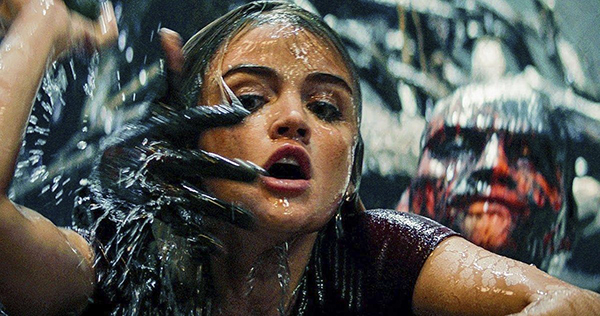“Fantasy Island” is horror production company Blumhouse’s twisted reimagining of the classic show of the same name.
The Daily Texan, along with several other student-run publications, participated in a conference call with director Jeff Wadlow (“Blumhouse’s Truth or Dare,” “Kick-Ass 2”) and actress Lucy Hale (“Blumhouse’s Truth or Dare,” “Pretty Little Liars”).
The Daily Texan: What draws both of you to the horror genre?
Lucy Hale: I’ve always loved watching (horror). My character has a great line in the movie that says, “That’s why we ride roller coasters and watch horror movies, because we like to feel something.” And I think that when watching (horror), you’re so present. I love not knowing what’s going to come next. I’m definitely a thrill-seeker, so I love watching them. (When it comes to) making them, you know, I’m just grateful for any job.
Jeff Wadlow: I’m very interested in the dialogue between the film and the audience and how we’re choosing to sequence images, how to create an experience for the audience, how we are creating tension and releasing it. And I love doing that with action movies, but I also love doing it with thrillers and horror movies. It’s a difference of scale, and you have to get much more focused and smaller with a thriller or a horror movie to create that intensity, but it’s still about that dialogue with the audience.
LH: What he said!
The Tufts Daily: Are you still finding yourself pulling things from Aria (“Pretty Little Liars”) as a character, especially in horror films?
LH: If they brought that show back, it should be made into a horror film. There were so many suspense and thriller elements in that show that definitely prepared me for “Truth or Dare” and “Fantasy Island.” But the characters are all so different, and I never try to play the same thing twice. I definitely think that being chased after someone for eight seasons on a show, being stalked, I definitely have my horror face down. It’s all in the eyes.
JW: One thing (Hale) understand(s) is the dance between the actor and the camera. Some actors will do incredible work, but they’re not presenting it in the way where the lens can find it. A lot of (the performance) gets lost. All that matters is what the camera perceives.
DU Clarion: As a director, what do you look for in a role?
JW: I look for actors who bring themselves to the role. I always say I cast the actor not the character, so that in the script is sort of a sketch of a person, and I’m looking for a real person who’s going to bring something interesting that I could never have imagined. I will start rewriting for them and thinking of new ways to express the character on screen through wardrobe, through dialogue and through blocking. And a lot of that comes from the actor. What I love about Lucy is that she gets that. She becomes her own department head. I think that’s really important that an actor takes ownership of the role.





















